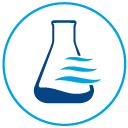
Is the Water You Drink Safe For Your Health?
Guidelines for drinking water quality
The United Nations (UN) has declared that access to safe drinking water is a fundamental human right. The World Health Organization (WHO) has established specific guidelines for safe drinking water. Many countries have adopted these guidelines into their regulatory requirements for water systems servicing drinking water sources for the public. Most of the WHO’s guidelines are meant to keep water safe to drink, use in food preparation and use to clean dishes, utensils, pots & pans, etc., so that people do not ingest substances that can make them sick.
Drinking water quality standards
In the United States it is the responsibility of the Environmental Protection Agency (EPA) to oversee all public drinking water quality testing methods and standards. These standards apply to three water quality parameters; physical, chemical and biological.
Physical parameters:
This quality evaluation involves the total solids content in the tested water. This includes matter floating, matter that settles to the bottom, and soluble matter that stays in the water. Physical parameters are measured by four factors:
- Color: influenced by organic materials dissolved in the water tested perhaps vegetation or leached substances from land runoff or leaching.
- Taste and odor: influenced by organic compounds, dissolved gases or inorganic salts.
- Turbidity: influenced by suspended solids like silt, clay or other organic matter.
- Temperature: cool water is most desireable and it should not fluctuate greatly.
Chemical parameters:
This quality evaluation has significant connection to human health and safety concerns. Chemical quality parameters may have varying risk factors depending on your location and what industrial, mining, waste management and other activities have occurred nearby, upstream or upwind in the past. They will include alkalinity, pH, nitrogen compounds, phosphorus, heavy metals, and toxic substances such as PFAS, nitrate, dioxin, pesticides, solvents and insecticides.
Biological parameters:
The most common waterborne pathogens are biological microorganisms such as bacteria, viruses and protozoa some of which cause severe illness or disease. Most of these dangerous pathogens are attributable to contamination by human and animal feces. The dangers of these diseases are multiplied when carried in potable water because once they take hold in populations they can be transmitted in multiple ways. This is why almost all drinking water in the US is filtered and treated with chlorine and/or other chemicals to kill pathogens like E.coli, Campylobacter, Hepatitis, Salmonella or Giardia.
Drinking water testing
If you are served in your residence by a public water service provider then they and the EPA are responsible for adhering to drinking water quality testing methods and standards that ensure your water is safe to drink. However, you must never take your drinking water for granted. If you notice any changes in color, taste or smell or if you just want to know how clean your drinking water really is there are ways to find out.
You can request the latest annual report, known as a Consumer Confidence Report (CCR), from your water supplier. You can buy a drinking water testing kit and give that a try. These kits are not designed for in depth testing or identification of specific issues but they will give you an overview. Or you can contact a local drinking water testing lab. The benefit of these labs is that they often have a thorough preliminary process to help them isolate potential issues and contaminants which helps them create a specific combination of tests based on problems encountered in your area as well as your own questions.
If you get your drinking water from a well and must test your own water, laboratories have sophisticated, top of the line drinking water testing equipment that is capable of giving you extremely accurate results for a full range of substances. The professional technicians at a drinking water testing lab can tailor their tests and methods to fit your needs, your area, your usage and will interpret the results and identify potential problems for you.
Drinking water testing on a budget
Buying a drinking water testing kit online will be your least expensive option in the short term. However, especially if you get your water from a well or you have some specific issues you want addressed you will find that the expertise and personal experience of working with a laboratory has long term benefits. Through the process of working with expert chemists you will gain understanding of and support with maintaining your drinking water. And by working ahead of time to identify a specific group of tests for your situation it is also possible to keep your costs manageable.
Water Testing Methods at Torrent Laboratory
Torrent Laboratory, Inc., is a State of California certified (CAL ELAP) Laboratory. Torrent Laboratory employs EPA approved testing procedures (Test Methods) and services that meet all quality control analytical and documentation requirements demanded by California regulating authorities.
Torrent has decades of experience and our chemists have a combined 150 years of analytical expertise. We know exactly how to serve you! Our final reports contain an additional attachment that includes the Federal Guidelines so that you can compare your water quality data. And, our relationship doesn’t necessarily end once you receive your data–Torrent is always available if you have additional questions or concerns. Send us an email at customerservice@torrentlaboratory.com and we’ll be happy to discuss your report with you.
We know that there are pre-packaged water testing test kits available; however, they usually cannot detect in the part per billion and part per trillion range. Also, those kits are useless when it comes to comprehensive water quality testing! Municipality-delivered tap water, bottled water, home-filtered water, and well water all have unique characteristics that pre-packaged kits do not necessarily address or check. Torrent understands all of our client’s situations are unique, which is why we spend time with you up-front to find out exactly what you are interested in determining.
Conclusion
Gaining full trust in something as vital to your family’s health as your drinking water is always a good investment. By testing your drinking water periodically, you are ensuring the availability of safe drinking water for your family, friends and guests. Moreover, you will know that your own tap or well water is as safe and good as bottled water (or better). Which could help you reduce the use of costly bottled water except when absolutely necessary.






